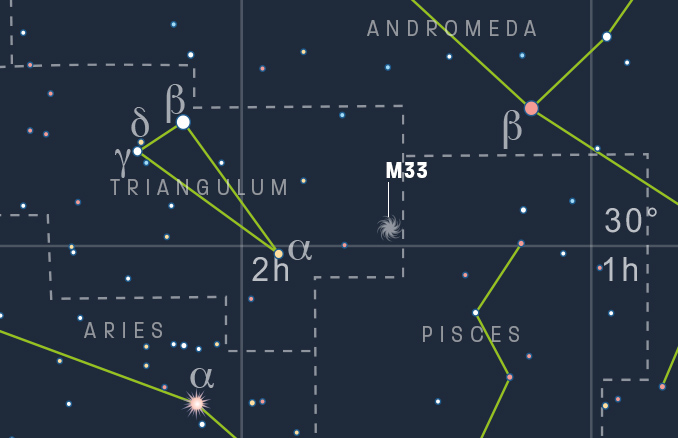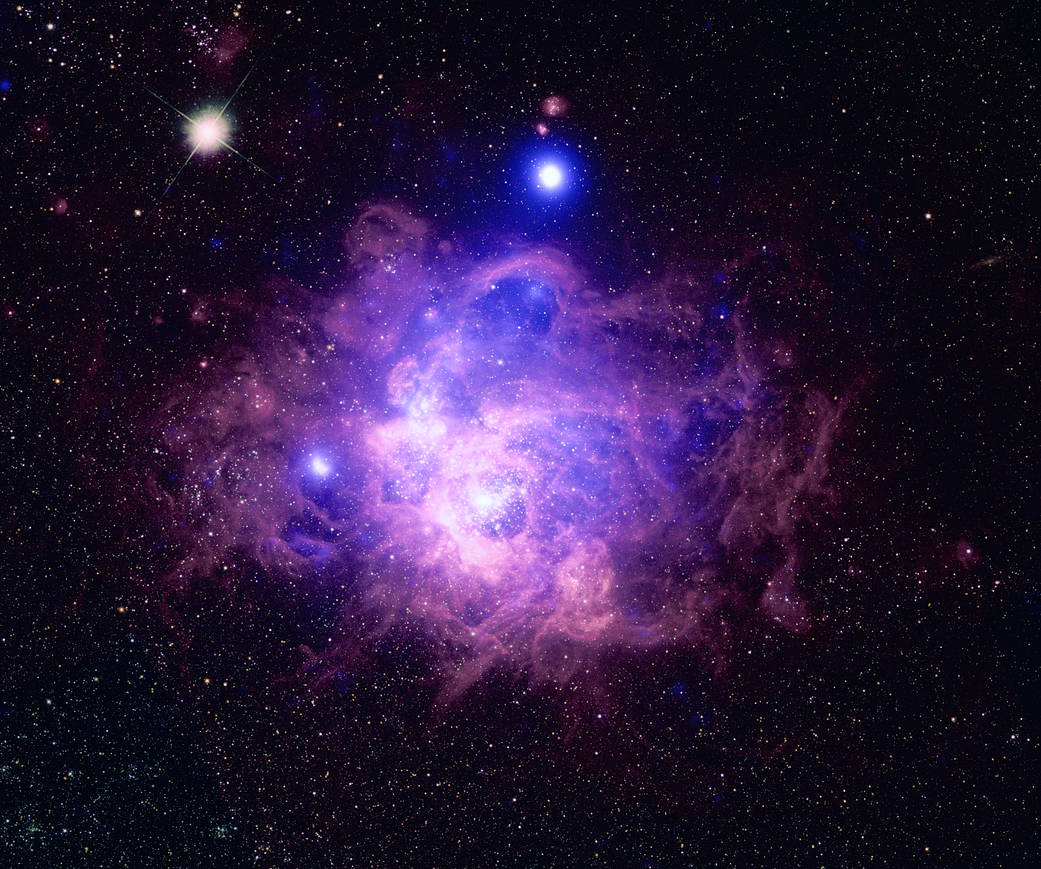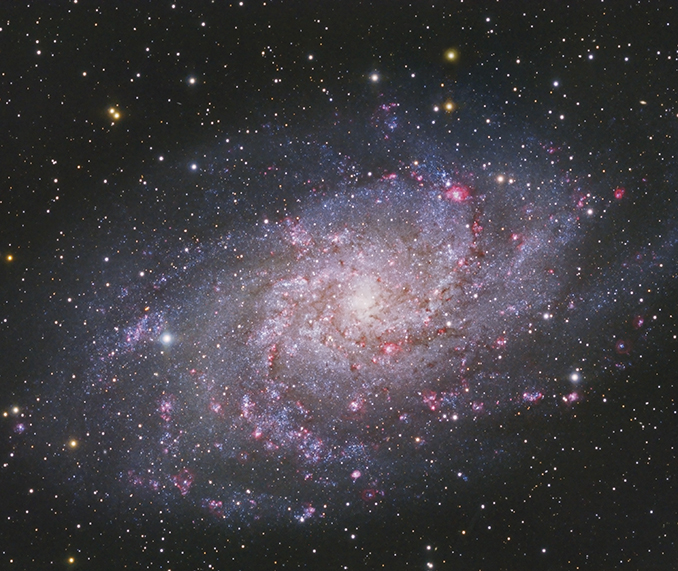Messier 33 (NGC 598), the well-known Triangulum Galaxy, takes its nickname from the constellation that hosts it. is an outstanding spiral galaxy that favourably presents itself face-on to our line of sight. Bodily, it’s the third-largest galaxy in our Native Group of galaxies, and as main galaxies go, solely marvellous M31 in Andromeda lies nearer to us. These attributes give us a panoramic view of it throughout its lovely and sophisticated type, which is substantial sufficient to make it seem over twice the dimensions of the total Moon.
Eagle-eyed observers on the darkest websites can spot M33 with the bare eye, and a pair of binoculars or a small telescope comfortably elevate it from the sky background on a clear, moonless evening free from main sources of sunshine air pollution.
The Hubble House Telescope has studied Messier 33 down the years, discovering no hint of a supermassive black hole lurking at its core, which is unusually small core in comparison with that of different spiral galaxies. Hubble additionally decided that M33 is present process speedy star-birth in its quite a few blue-coloured areas, indicating an general star formation fee maybe ten occasions that of the Andromeda Galaxy. Nonetheless, its estimated 40 billion star depend is dwarfed by M31’s one trillion (1 x 1012)!

Tips on how to observe
Messier 33 is straightforward to seek out, mendacity simply inside Triangulum’s western boundary with Pisces, some 4.3 levels west-north-west of magnitude +3.4 Mothallah (alpha [α] Trianguli), the star marking the apex of Triangulum’s signature asterism, a slim triangular define of third-magnitude stars.
As quickly as darkness falls at mid-month, M33 has climbed to a wholesome altitude within the east and it stays on present all through the remainder of the evening, culminating at 1am BST at a splendid 70-degree or so altitude.
M33 sports activities a really massive obvious diameter of 73 × 45 arcminutes and shines with the magnitude of a sixth-magnitude star. Nonetheless, with that gentle unfold over such a big space of sky, this large spiral is blighted with low floor brightness, which from time to time makes it not as simple to see as one may need hoped. Beneath an city or perhaps a suburban sky on an inferior evening, M33 can seem missing in distinction and melts into the sky background.
At a darkish, countryside website on a moonless evening, nevertheless, it’s a wonderful sight via binoculars or a small, wide-field refractor. With a completely dark-adapted eye, the view via a 100–150mm (four- to six-inch) telescope might be breathtaking, because the galaxy takes on a ’S’-shaped type.
Inside M33 lies NGC 604, an enormous, reddish emission nebula the place stars are forming. It’s the second most luminous H-II area within the Native Group after 30 Doradus within the Massive Magellanic Cloud. A telescope within the 300mm (12-inch) class can present it. Search for it about 10 arcminutes north-east of M33’s core.
Lastly, if you end up below a pristine sky at one of many world’s darkish websites, do have a crack at finding M33 with out optical support. In case you reach recognizing it, you’ll be considered one of solely a small band of fortunate observers!





